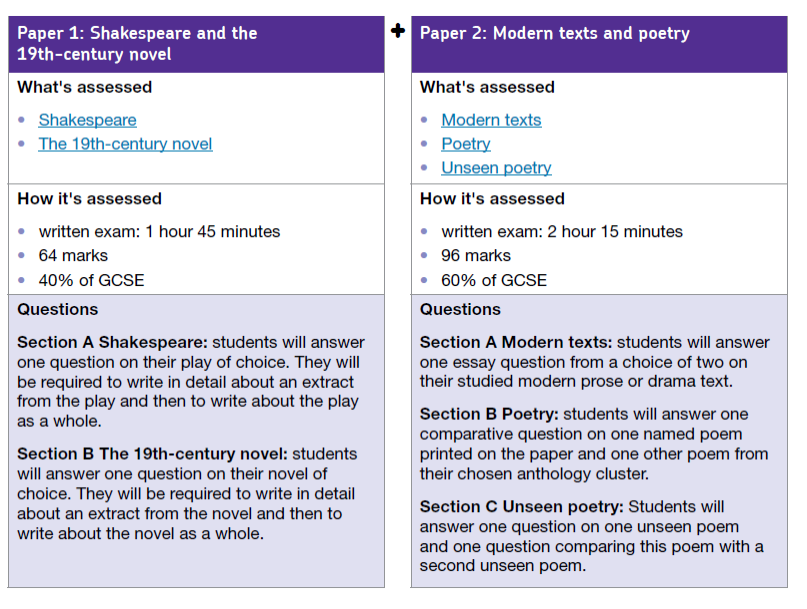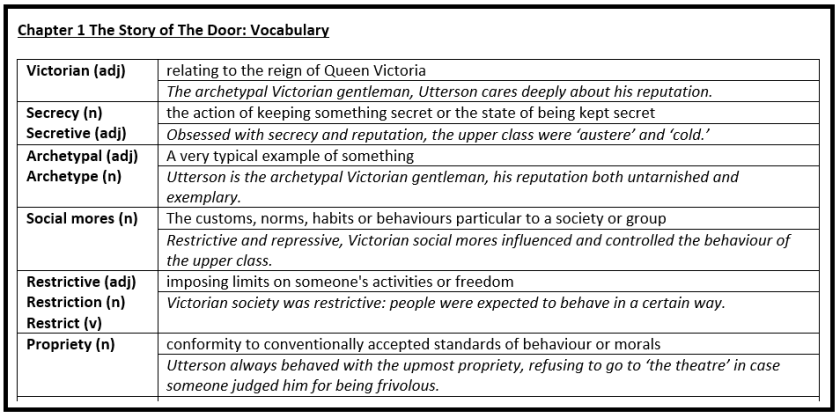Writing
Writing
- producing clear and coherent text: writing effectively about literature for a range of purposes such as: to describe, explain, summarise, argue, analyse and evaluate; discussing and maintaining a point of view; selecting and emphasising key points; using relevant quotation and using detailed textual references
- writing with accurate Standard English: accurate spelling, punctuation and grammar.
Here is a detailed breakdown of the qualification:

Assessment in English
We use Comparative Judgement to summatively assess extended writing three times a year. Every time we complete a judging session, we compile a whole class feedback sheet that records strengths and weaknesses. These inform the next teaching steps as well as informing curricula amendments. We also use whole class feedback when marking: teachers go over excellent pieces of work and reteach or correct misconceptions and omissions. Most lessons involve low-stakes retrieval practice and restrictive practice activities that focus on the component parts of writing and responding to texts. These tasks allow teachers to give instant corrective feedback live in class.
Booklets
At Trinity, we teach English using mastery booklets. These contain everything that students need for an entire unit of study and complement the main literature texts that are taught. Booklets typically contain:
1. Vocabulary Tables

These tables are used to teach high-utility, academic vocabulary, providing students with example sentences and all relevant forms of the words that are taught. Students practise using these words, initially at a sentence level and then in wider writing
